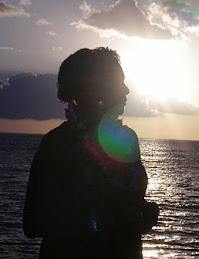A group of senior managers was discussing an opening for a new supervisory position. The managers went around the table, assessing employees and their suitability for promotion.
After the accolades, the managers moved on to other candidates, without any serious discussion about promoting their “linchpin.”
That omission seemed to be a disconnect to me, so I raised the question: Why not Sandra?
The managers were surprised, and a little sheepish. They described Sandra as the foundation of their efforts; someone who never refused additional tasks or late hours. She cheerfully mentored less-experienced coworkers, often without being asked.
I asked again: Why not Sandra?
The managers kinda shrugged. They just never saw her as management material. "She's always so pleasant and unassuming," one said. "Never high-maintenance; never asks anything for herself."
"She's a real worker bee," another person concluded.I have to acknowledge a degree of hypersensitivity about the concept of “strong women.” I’ve been hearing about “strong black women” all of my life. I consider myself to be a strong black woman. However, my adult observations of strong women left me somewhat ambivalent. Strong women take care of business and everyone around them. People celebrate their strength and turn to them for help.
But all too often, strong women neglect themselves. They live on the feeling of being needed without ever showing enough self-love to demand the appreciation they deserve.
Strength is the ability to withstand. A strong person can take on more and more weight and still keep going. But there is a limit. Eventually, even the strongest person will break if they are pushed too far beyond their limit.
And the “strong” label can produce an unsettling side effect: Admirers of strong people may see that strength as permission to keep piling on, never questioning if their continued requests for help turn into exploitation. They reinforce the unequal relationship with their gratitude for each assist, and another declaration of admiration for strength.
People talk a lot about “strong” leaders. What I think they really want is a "powerful" leader.
By “powerful,” I don’t mean someone who moves through the world with an unspoken threat of force and the willingness to use it against enemies. I define power as the ability to influence other people, to collaborate and gain knowledge from the perspectives of others, and then lead people to a common purpose or goal.
Strength, in its ability to withstand, is static. Power is dynamic. Strength develops from within. Power radiates out. And you can’t have power without first developing strength.
Some people fear power because of all the historic examples of its abuse. Yet, you rarely hear someone disparage the quality of strength.
By my assessment, the senior managers were overlooking a powerful leader in Sandra. I don’t discount their instincts: there was something about Sandra’s personal presentation that caused them to "hold her small;" that made them see her more as a subordinate than a leader. Perhaps one of them could mentor her about the culture of management in their organization so that she could better “look” like a manager.
By all accounts, Sandra has the goods. Maybe senior management will be willing to use its power to help her become the supervisor it wants.




No comments:
Post a Comment